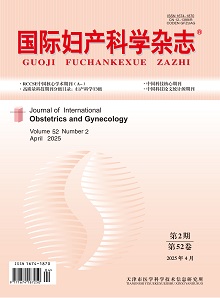Objective: To investigate the effect of serum exosomes from patients with severe preeclampsia (PE) on the immune cell function of normal decidual tissue. Methods: Serum samples were collected from 5 severe PE patients (PE group) and 5 normal pregnant women (NC group) who were hospitalized for delivery during the same period, and serum exosomes were extracted. Six cases of decidual tissue from patients undergoing induced abortion were collected, and dNK cells, M?, CD4+T cells, and CD8+T cells were extracted and purified from the decidual tissue of normal early pregnancy miscarriage. Western blotting was used to detect the expression of PLAP, a placental specific marker protein in the serum exosomes, and detect the relevant functions of major immune cells (dNK, M?, CD4+T, CD8+T) in the decidua after uptake of serum exosomes. Results: The morphology of two groups of serum exosomes was typical, and both expressed characteristic proteins of exosomes and PLAP. Both groups of dNK, M?, CD4+T and CD8+T cells were able to uptake serum exosomes normally. Compared with the NC group, the PE group showed a decrease in the levels of IL-8, IL-10, IP-10, TGF-β, VEGF, GM-CSF, and LIF secreted by dNK after ingesting serum exosomes. The proportion of M1 type M? increased, and the secretion of IL-12 and IL-23 levels by M? increased, while the levels of IL-4 and IL-10 decreased. The proliferation rate of CD4+T and CD8+T cells decreased, the apoptosis rate increased, the proportion of Treg cells decreased, the levels of TNF-α and IFN-γ secreted increased, the levels of IL-4 and IL-10 decreased, and the levels of PD-1 and Tim-3 in cells decreased, with statistically significant differences (all P<0.05). Conclusions: Placental derived serum exosomes from severe PE patients can affect various decidual immune cell related functions at the maternal fetal interface.

